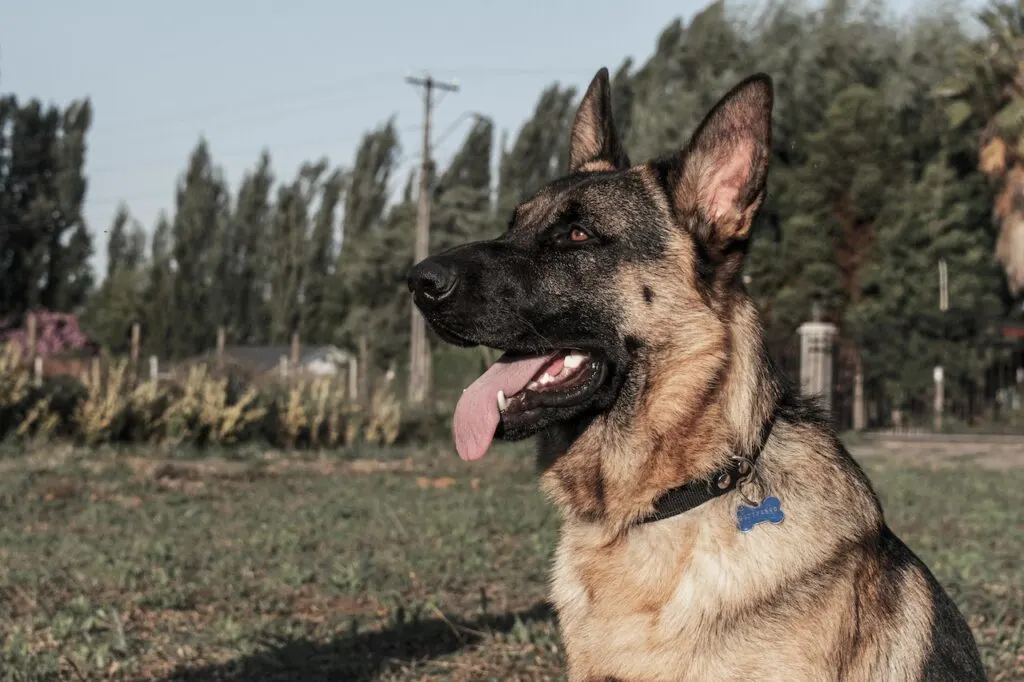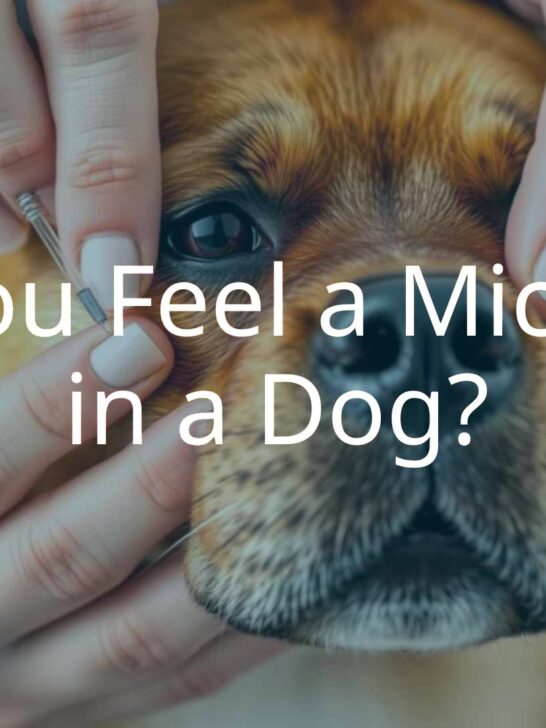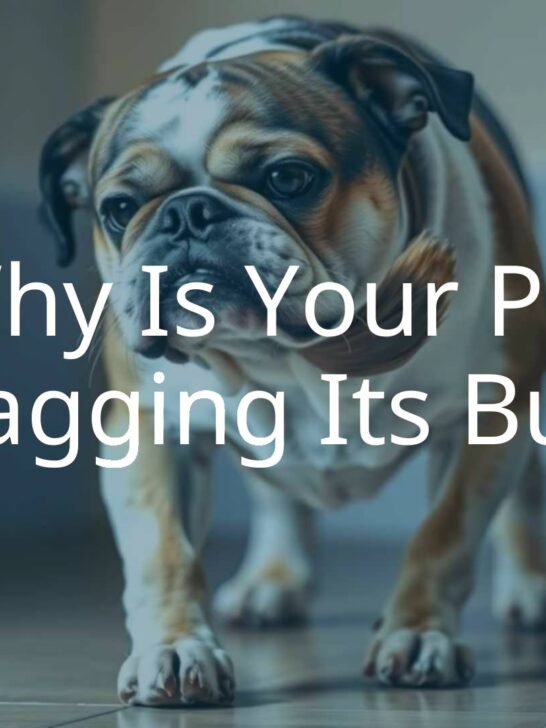Human Food Dogs Can and Can’t Eat
Feeding our furry friends has always been a topic of concern. With a wide array of options, selecting the foods that will provide our dogs with the necessary nutrients while being tasty can be challenging.
Many pet owners wonder if sharing human food with their four-legged companions is safe. After all, if we eat it on a daily basis, can it be harmful to our pets?
Unfortunately, only some human foods are safe for dogs to eat. Knowing which ones are beneficial and which ones should be avoided is crucial.
Below, we explore the human food dogs can eat and those you should never feed your canine companion.
Key Takeaways
- Certain human foods can be safe and even nutritious for dogs, offering them potential health benefits. However, it’s also crucial to keep in mind that certain human foods can be harmful or toxic to dogs.
- Foods like lean meats and peanut butter are safe for dogs to consume in moderation.
- Most fruits and vegetables, like bananas and carrots, are also safe for pets to eat.
- Chocolate, grapes, raisins, onions, garlic, and certain flavored products that contain xylitol should never be given to dogs, as they can lead to severe health issues or even be fatal.
Can Dogs Eat Human Food?
The answer to this question isn’t a simple yes or no.
Dogs process food differently than humans. As a result, specific foods that are nutritious and safe for us can cause serious health problems in dogs.
Some meals commonly included in human diets might carry substances toxic to dogs. And when ingested, they could lead to dire consequences.
The key is to know which foods are safe and to feed them in moderation. Just like with any other aspect of our pets’ health, responsible and informed decision-making is essential when it comes to their diet.
Is It Safe To Feed Human Food to Dogs?

There is a wide range of human foods that are safe and healthy for dogs to eat.
For example, fruits and vegetables can be a healthy and tasty addition to your dog’s diet. These include apples, bananas, carrots, and sweet potatoes.
Additionally, human foods, like cooked meat, can be a perfect dog treat during training sessions. These foods are packed with vitamins, minerals, and fiber, promoting overall well-being and a healthy digestive system.
That said, remember that dog food is specifically formulated to meet the nutritional needs of dogs, and it should be the primary source of their diet.
List of Human Foods Dogs Can Eat
While many human foods are safe for dogs to consume, it’s not a general rule. Dogs have different dietary requirements, and their digestive systems may not tolerate certain foods as well as humans.
Here is a list of human foods that are generally safe for dogs to eat:
Peanut Butter
Peanut butter is a popular treat that many dogs love. It is rich in protein, monounsaturated fatty acids, magnesium, and potassium.
Still, it’s safe for your dog to consume only in moderation.
Remember to check the ingredients of the peanut butter you plan to give your dog. Some variants may contain added sugar or xylitol, which are harmful to dogs.
Always choose natural, unsalted peanut butter without any added sugars or artificial sweeteners.
Cashews
It may come as a surprise to some, but it’s fine for dogs to eat cashews. They certainly shouldn’t be the central part of their diet, but they can be an occasional treat.
Cashews are rich in key nutrients. They contain calcium and magnesium, which are essential minerals for your dog’s health.
Additionally, they are packed with antioxidants and proteins. These can help boost your dog’s immune system and muscle growth.
It’s worth noting that cashews are high in fat, so overfeeding can lead to weight gain or digestive issues in dogs. Besides, some dogs may have difficulty digesting these nuts.
Also, salted cashews can introduce too much sodium into their diet, which can lead to other health issues.
Cooked Meat
Yes, cooked meat can be a valuable treat for dogs. Cooked chicken, turkey, and lean beef provide dogs with essential amino acids and protein.
You also have the option to serve meat solo or mix it with your pet’s regular food. This versatility adds another feather to its cap.
Chicken stands out as a popular ingredient in dog foods. This is primarily due to its rich protein content.
However, removing bones, skin, and excess fat is vital before feeding your dog cooked meat. Otherwise, it can cause various health issues.
Salmon
Many dogs enjoy eating salmon due to its flavorful taste and tender texture. It’s an excellent choice for a healthy snack. This fish is packed with protein, beneficial fats, and amino acids.
Incorporating cooked salmon into a dog’s diet can boost both brain and joint health. On top of that, it serves as quite the invigorator for a dog’s immune system.
Things take a turn, however, when it comes to raw or undercooked salmon. Such a state of meat hosts harmful parasites that can inflict severe illnesses on dogs. The aftermath of consuming undercooked salmon can range from vomiting and diarrhea to dehydration. In the worst-case scenario, it could even lead to death.
When cooking salmon for your furry friend, use only a limited amount of butter or oil and avoid adding any salt. This way, you can offer them a mouthwatering treat that’s not only tasty but also healthy.
Fruits and Vegetables
Fruits and vegetables are not just beneficial to us humans. They can be healthy for our furry friends too. These goodies from nature could supply needed nutrients for our dogs.
Apples, for example, can be a great source of vitamins A and C and fiber. Carrots are another healthy option that can aid in dental health due to their crunchy texture.
However, safety first! Make sure these fruits and veggies are served appropriately. Cut them into small, manageable pieces to keep any choking hazards at bay.
Coconut
You might have come across the opinion that coconut is a superfood for dogs. And it’s not that far from the truth! This tropical treat offers a host of benefits, including anti-inflammatory properties and improved coat strength.
This unique fruit contains lauric acid, which aids in fighting off bacteria and viruses, making it a natural immunity booster. Additionally, coconut can freshen your dog’s breath and alleviate skin issues like hot spots, flea allergies, and itchy skin.
So, apart from the delicious taste, coconut can do wonders for your dog’s health and appearance. But like any other treat, it should be used in moderation.
Even if it’s considered safe food for dogs to consume, don’t build your dog’s diet around it.
Cheese
Your furry friend can enjoy cheese in small portions. But be very careful when giving it to your four-legged friend.
Some dogs may be lactose intolerant. Because of that, they may have difficulty digesting dairy products like cheese.
Never feed your dog too much cheese, as it can lead to gastrointestinal upset, including diarrhea and vomiting.
High-fat cheeses can also contribute to weight gain and obesity in dogs. Instead, opt for varieties that carry less fat content. Some of the best options include cheeses like mozzarella and cottage cheese.
Bananas
Generally, bananas are safe for dogs to eat in moderation. They are one of the healthiest human foods to give your four-legged companions since they are a good source of vitamins and minerals.
The beneficial nutrients they offer range from potassium and vitamin C to magnesium and vitamin B6.
Bananas are also excellent treats for your dog, given their chewy texture and sweet flavor.
However, it’s important to feed bananas to dogs in small amounts. Because they are high in sugar, they may contribute to obesity and other health issues if consumed in excessive amounts.
Additionally, some dogs may have gastrointestinal sensitivities or allergies to bananas. Monitor your dog for any adverse reactions after feeding them bananas for the first time.
Whole Grains
Recently, gluten-free diets have grown in popularity. This trend has led to questions about the part grains play in a dog’s diet.
But the truth is, besides dogs with grain sensitivities, most canines reap nutritional benefits from grain-inclusive meals.
Each grain type brings different benefits to a dog’s diet. For instance, rice and oats are good sources of carbohydrates and fiber.
Ensure the grains are cooked thoroughly and not seasoned with any ingredients that can be harmful to dogs, such as onions or garlic.
What Human Foods Dogs Should Never Eat?

Despite being domesticated, dogs still have digestive systems that function quite differently from ours. Consequently, some types of human food pose potential risks.
Here are some examples of people foods dogs should never eat:
Flavored Peanut Butter
Flavored peanut butter can be harmful to dogs. Chocolate-flavored peanut butter, in particular, should never be fed to your puppy.
Chocolate is highly toxic to dogs, and artificial sweeteners like xylitol can cause a dangerous drop in blood sugar levels. Even a tiny quantity can harm them severely.
Some other components that go into flavorings may also disagree with your puppy’s tummy. Dogs have sensitive stomachs, and some ingredients simply do not agree with them.
For the safety and well-being of your precious pup, it’s best to stay away from flavored peanut butter altogether.
Dairy Products
Most dogs are lactose intolerant. They lack the enzyme needed to break down lactose, a sugar found in milk products like ice cream.
Feeding dogs milk can lead to digestive issues, such as gas, diarrhea, and stomach upset. Ice cream is also high in sugar, and excessive sugar intake can harm overweight dogs or dogs with diabetes.
Instead of milk and ice cream, it is much safer to offer dogs specially-made frozen treats designed for them. There are many commercial dog foods and treats that are low in sugar and come in flavors that are safe for them to eat.
Onions and Garlic
Onions and garlic are toxic for dogs. These plants and a few others, such as chives and leeks, belong to the Allium family.
Plants from this family contain sulfoxides and disulfides, which can harm the red blood cells in dogs and cats, leading to anemia.
Some pets can tolerate small amounts without serious effects. However, certain Japanese dog breeds like Akitas and Shiba Inus are highly sensitive.
Overall, it’s best to keep all dogs away from these plants for their safety.
Chocolate
Chocolate toxicity is a common cause of pet poisoning. The primary culprit is theobromine, a compound found in chocolate that is poisonous to dogs. Chocolate also consists of caffeine, which can be harmful to pets.
The darker the chocolate, the higher the concentration of theobromine it houses. However, it’s not just dark or baker’s chocolate that poses a risk. All types of chocolate can cause health issues for your pet.
Even small amounts of chocolate can cause symptoms like increased heart rate and tremors. In severe cases, it can lead to seizures or death.
It is crucial to keep all forms of chocolate away from dogs and seek veterinary care immediately if they accidentally consume it.
Grapes and Raisins
It’s not safe for dogs to eat grapes or raisins. These seemingly innocent fruits are capable of precipitating kidney failure in canines.
Alarmingly, even a few bites can trigger major health complications in certain dogs.
The ingestion of raisins or grapes often manifests through several symptoms. These include frequent bouts of vomiting and diarrhea. Another symptom is a sudden loss of appetite, which might lead to drastic weight loss if not addressed promptly.
If you suspect your dog has consumed grapes or raisins, seek immediate veterinary attention.
Raw Eggs
Cooked eggs can offer your dog many nutritional benefits. However, raw eggs are an entirely different story.
Raw eggs can pose a risk of Salmonella and other bacterial infections in dogs, just like in humans.
Another health hazard linked to dogs consuming raw eggs is biotin deficiency. Raw eggs contain an enzyme that interferes with biotin absorption, an essential vitamin required for healthy skin and coats in dogs.
It’s generally recommended to cook eggs thoroughly before feeding them to dogs to eliminate this risk.
Should You Feed Your Dog Human Food?

Feeding our dogs is a big responsibility. At times, we might be tempted to offer them some morsels from our plates. Yet, the health and wellness of our pets should always take center stage.
Not all human foods are safe for dogs to consume. Some may even cause harmful reactions. By being aware of these hazards, we contribute to providing a balanced and nutritious diet for our dogs.
Feeding should always be done in moderation. Overfeeding or feeding the wrong foods can upset their digestive system. Maintaining balance is critical to their health.
Should there be any doubts, reach out to a veterinary professional. They can provide advice and answer any questions regarding your dog’s diet.
Final Thoughts
Dogs, like humans, can eat a variety of foods. Fruits, vegetables, lean meats, and grains are good for them. Nonetheless, these foods should only be given occasionally.
Remember that some human foods can be toxic to dogs. For instance, chocolate, raw eggs, grapes, and onions are harmful to them. Other times, some foods may be problematic for dogs to digest, resulting in food poisoning and other digestive problems.
Consulting with a veterinarian before introducing human food into a dog’s diet is always recommended to ensure their safety and well-being.



















